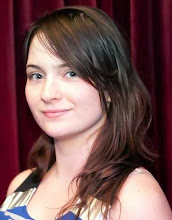Today I took my lunch break in Orono. I'd just finished talking with a goat farmer for a few hours for a story and was already in town. I called my sandwich in as I drove my 97 Saturn down the pothole speckled dirt Bennoch Road.
"An Ella on basil focaccia if you have it, hot."
"It will be 15 minutes."
I broke for the red light at the intersection of Bennoch and Main. I smelled the smoke of wood fire and smiled. I love that smell. I then remembered that on July 2 it wasn't the smell of someone's wood stove, it was the three-story home that burnt down a few weeks ago, displacing 30. Mostly people I'd gone to school with.
I picked a parking spot across from the Ampersand and climbed the three steps to harvest Moon and took a bar stood at a shiny, varnished wood table. I looked over. There were no white paper-packaged sandwiches waiting on the metal shelf. My sandwich must not be ready. Under the shelf five grease-soaked orders hung. I needed to think of a lead for this goat story while it's still fresh. Despite filling my entire, brand new reporter's notebook on one side in the last three hours, I pulled my pen out and pushed it between my fingers which had red sore spots from writing already.
I sat back thinking that I must have the best life.
Then my Ella came.
"An Ella on basil focaccia if you have it, hot."
"It will be 15 minutes."
I broke for the red light at the intersection of Bennoch and Main. I smelled the smoke of wood fire and smiled. I love that smell. I then remembered that on July 2 it wasn't the smell of someone's wood stove, it was the three-story home that burnt down a few weeks ago, displacing 30. Mostly people I'd gone to school with.
I picked a parking spot across from the Ampersand and climbed the three steps to harvest Moon and took a bar stood at a shiny, varnished wood table. I looked over. There were no white paper-packaged sandwiches waiting on the metal shelf. My sandwich must not be ready. Under the shelf five grease-soaked orders hung. I needed to think of a lead for this goat story while it's still fresh. Despite filling my entire, brand new reporter's notebook on one side in the last three hours, I pulled my pen out and pushed it between my fingers which had red sore spots from writing already.
I sat back thinking that I must have the best life.
Then my Ella came.
